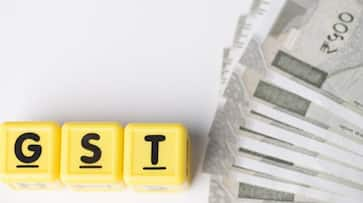Even as Indian SMEs were getting back on their feet from the after-effects of the first wave of the COVID-19 pandemic, now there is a second wave. Small businesses are facing increasing uncertainties in their business, which is bound to impact their GST revenues. Here a GST Calculator can help them better when it comes to their payments
Even as Indian SMEs were getting back on their feet from the after-effects of the first wave of the COVID-19 pandemic, now there is a second wave. Small businesses are facing increasing uncertainties in their business, which is bound to impact their GST revenues. Here a GST Calculator can help them better when it comes to their payments.
Additionally, lending to MSMEs continue to be under stress. Traditional lending models have long acted as a barrier to accessing finance for SMEs in India. This segment contributes to almost 40 percent of India’s GDP.
A financing crunch has the potential to cause a gridlock in the economy, if not checked.
After September 2020, the economy reopened with signs of revival which led to improvement in the sector; collections inched closer to pre-COVID levels and growth gathered momentum. But the second wave of COVID-19 has pulled back some of the recovery gains with subsequent impact on asset quality.
CARE Ratings expects the second wave of COVID-19 to adversely affect asset performance with credit costs expected to remain high in FY21 and FY22.
Now, new fintech companies are helping SMEs to stay afloat, as well as thrive, to move the economy forward.
A new way to disburse capital
India is witnessing a surge in fintech lenders for SMEs who have come up with a new model of lending which is fast, easy, cost-effective, and more transparent. For the first time, SMEs can share their data, which can help them access credit.
Razorpay has partnered with Visa on a new corporate card, which is specifically designed for small business owners to weather the impact of COVID-19. Lendingkart, which offers business loans and working capital loans, has raised $15 million in debt to disburse loans to 5,000 MSMEs through its NBFC arm.
Fintech firm Zaggle has introduced Founders Card- a credit card for SME owners intending to build a book of Rs 250 crore in the first year of business.
Digital payments company PayPal plans to offer collateral-free business loans to Indian merchants which include MSMEs, women entrepreneurs, sole proprietors and freelancers.
Technology: a key differentiator
In these volatile times, technology enables you to stay nimble, adaptable and even give a business an edge over the competition. Organizations with full-stack technology in their processes will often find themselves, responding more quickly to changes.
Cost reduction, better productivity, fewer mistakes, better TAT are just some of the few other benefits which tech enablement brings to the table. By using analytics and AI, fintech lenders are gaining a much deeper understanding of SMEs. The credit underwriting process becomes easier.
An SME's creditworthiness, evaluation, of risk and issuing of loans is speeded up. Today, these new, innovative, data-and AI-led solutions are better positioned to serve SMEs’ financing needs, lead them out of the imminent financial crisis, and unlock their potential.
While Fintech companies can be disruptive, creative and can widen the market in their way, the net result will be to provide lending to the SME sector, in an efficient, targeted and quick manner, which would benefit SMEs, investors and the economy in general.
Last Updated Jun 10, 2021, 3:01 PM IST









![Salman Khan sets stage on fire for Anant Ambani, Radhika Merchant pre-wedding festivities [WATCH] ATG](https://static-gi.asianetnews.com/images/01hr1hh8y86gvb4kbqgnyhc0w0/whatsapp-image-2024-03-03-at-12-24-37-pm_100x60xt.jpg)
![Pregnant Deepika Padukone dances with Ranveer Singh at Anant Ambani, Radhika Merchant pre-wedding bash [WATCH] ATG](https://static-gi.asianetnews.com/images/01hr1ffyd3nzqzgm6ba0k87vr8/whatsapp-image-2024-03-03-at-11-45-35-am_100x60xt.jpg)


